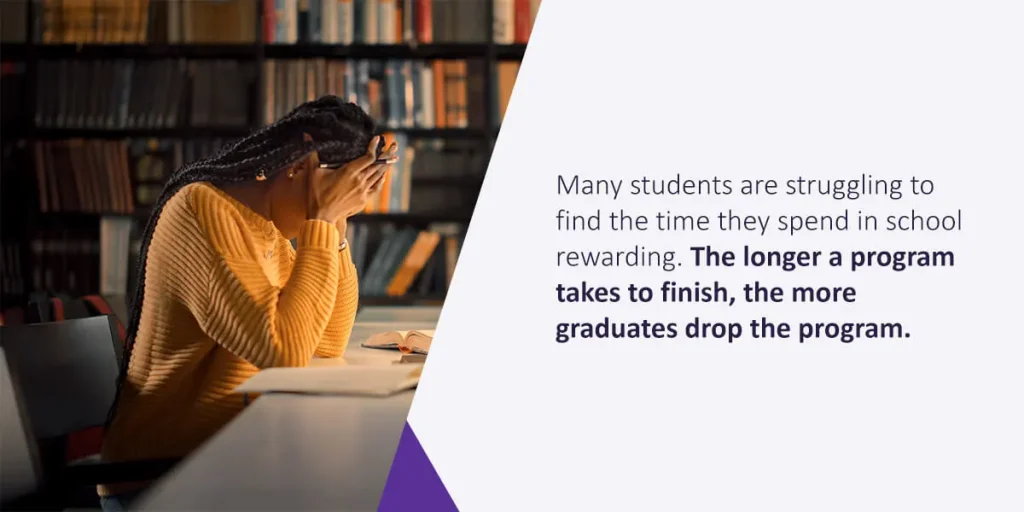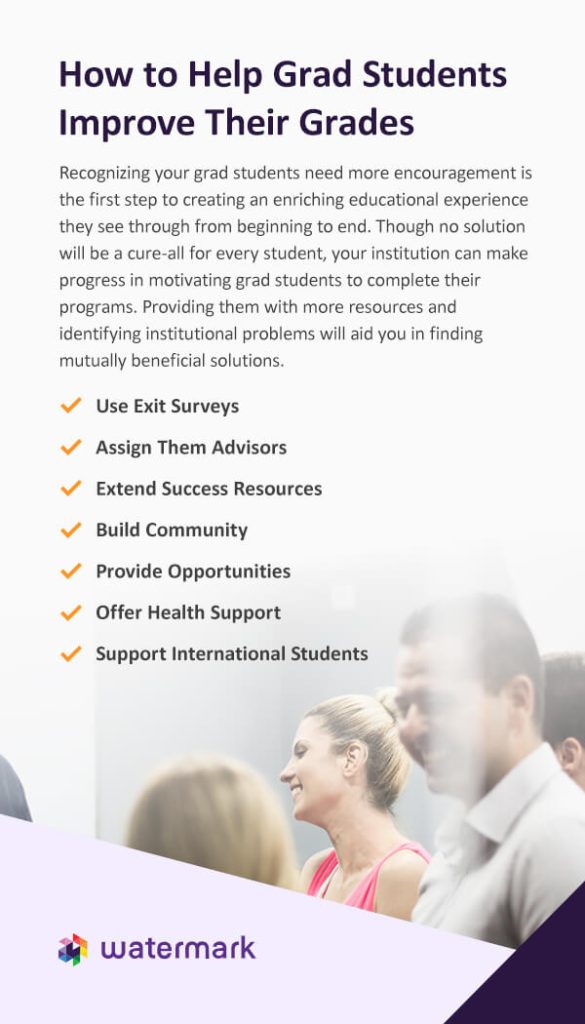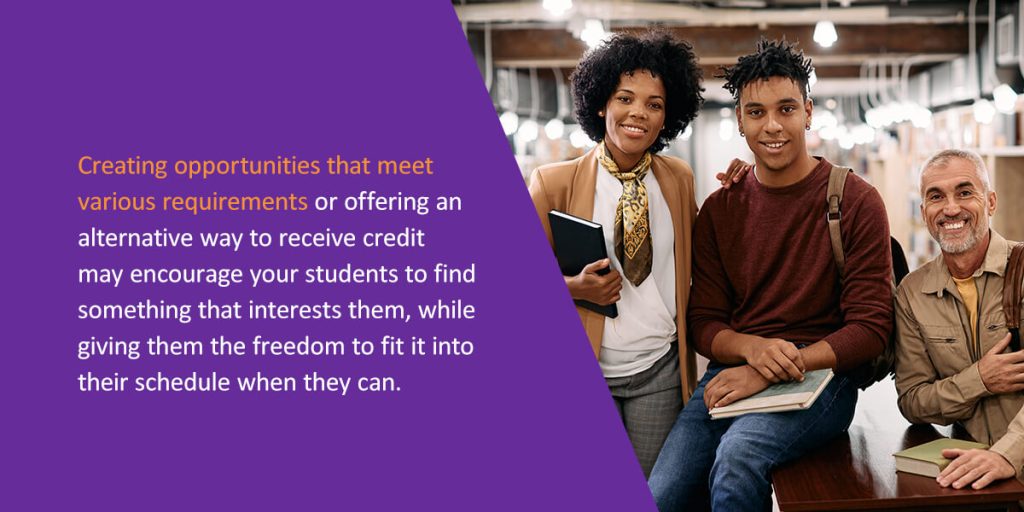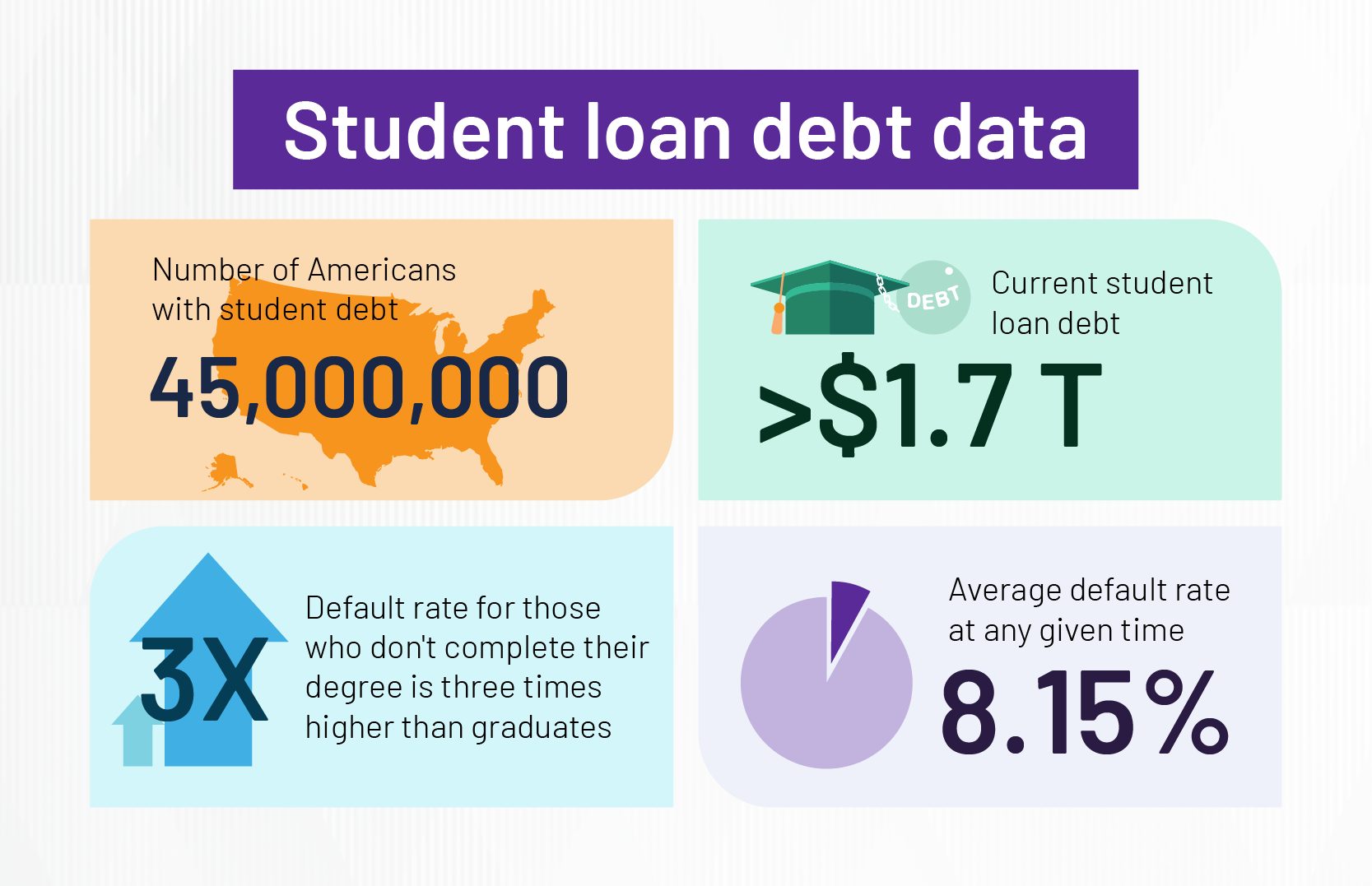Graduate students are an essential part of many secondary institutions. They dedicate time, effort, and money toward continuing their education and making an impact in their field. Some may think grad students don’t need as many success resources or guidance because they’ve already completed a one-degree program. However, this is far from the truth, and many students need just as much, if not more, assistance to successfully make it through their rigorous studies.
Though most students dedicate at least four years to undergraduate studies, many enter their grad program at a different stage in life. Some will be full-time employees, others may have children, and still, others are struggling to financially support themselves if they’ve moved away from home to complete their schooling. Additionally, most grad students are fresh out of undergrad or are only a few years removed from their previous studies. If they needed assistance the first time around, they likely still do.
What You Need to Know About Grad Student Retention
Many graduate students don’t complete their program due to multiple factors that hinder their success. Advocating for your graduate students is a critical component of keeping them engaged and interested and motivating them to complete their studies. Recognizing where your students feel disconnected or discouraged will help you fill the gap and deliver successful resources that aid their academics and personal life.
Here are some reasons graduate students don’t complete their programs.
- Finances: Many grad students rely on additional student loans to participate in their academic programs. A few thousand dollars can stack up very quickly, especially on top of the debt accrued from undergraduate studies. Many students find this debt crippling and decide the additional education is not worth the financial hassle.
- Additional responsibilities: To gain experience and make ends meet at home, many students opt to work full time while completing their studies. Managing a career, graduate-level coursework, and additional requirements such as internships, dissertations, or field research make life hectic and overwhelming for many students. Additionally, some people are experiencing life milestones and responsibilities, like saving funds for a wedding or caring for family members.

- Time: With all the additional responsibilities, graduate programs are increasingly taking longer. Many students are struggling to find the time they spend in school rewarding. The longer a program takes to finish, the more graduates drop the program.
- Age: College campuses tend to cater to a younger audience. Though most undergraduate students are between 18 and 22, many graduate students are older than 30. The campus culture they experience daily can be intimidating or negate their priorities and values. Students in their 30s and beyond likely care more about finding child care or parking accessibility than they do about Greek life, intramural sports, or the upcoming spring concert.
- Work delays: While many places have resumed in-person work, many graduates faced uncertainty in research and fieldwork due to the COVID-19 pandemic, and many locations shut down for good or are still operating under specific hours. Some programs may have cut or reduced funding, making it much harder for graduate students to complete their required coursework to graduate.
- Advisors: Successful mentoring relationships play a crucial role in graduate student success. When advisors are uninvolved, too hands-off, or otherwise seem unavailable, students lose a valuable connection that can motivate them to continue their studies.
You may not have the means to address every concern, especially simultaneously, but understanding student struggles is the start of coming up with solutions for them. Additionally, you might find many of your students share similar challenges. For example, imagine that your students say they don’t receive enough support, or you notice a particularly lengthy program has a high dropout rate. In that case, you know where to begin reparation efforts. You could seek alternative ways to advise your students and look for additional credit requirements so they can complete their degrees faster.

How to Help Grad Students Improve Their Grades
Recognizing your grad students need more encouragement is the first step to creating an enriching educational experience they see through from beginning to end. Though no solution will be a cure-all for every student, your institution can make progress in motivating grad students to complete their programs. Providing them with more resources and identifying institutional problems will aid you in finding mutually beneficial solutions.
1. Use Exit Surveys
Asking your students to answer course evaluations and surveys is one way you can identify where your grad students are struggling. Collecting and reviewing this data will provide you with many insights. Graduate student survey questions can help you make connections, track trends, and pinpoint strengths and weaknesses. You can also uncover the best teaching practices, identify the programs with the highest and lowest success rates, and recognize the demographics of struggling or succeeding grad students.
Graduate student exit survey questions could include topics such as:
- Experience with campus life
- How welcoming the institution is
- Overall experience
- Quality of degree program
- Inclusion of diverse perspectives
- Reason for enrollment
- Quality of materials in courses
- Career preparedness due to program
Watermark Course Evaluations & Surveys simplifies the evaluation process and converts student responses and input into actionable steps you can take to improve your institution. We can help you customize your surveys and evaluations to fit the descriptions of your courses and programs. With easy reporting, your faculty can spend less time gathering data and more time creating solutions to the challenges your students are identifying. You can also use this software to receive feedback from faculty, alumni, and staff for an extensive range of responses that provide you with solutions.
2. Assign Them Advisors
Knowing how to advise graduate students starts with giving them direct contact with assistance. A department advisor who checks in on your students can ensure they are mentally, emotionally, and physically well while challenging them with exciting opportunities or providing them with valuable success resources.
Additionally, if you want to help grad students improve their grades, giving them access to instructors they see regularly may help boost their productivity and retention. When students regularly interact with their advisors, they feel more inclined to discuss challenges or strike up a conversation after class, during office hours, or via email. Students who form a deeper connection with their department may feel more attached to their studies and feel confident that they can turn to a helping hand in times of need rather than internalizing their struggles.
3. Extend Success Resources
You want to meet graduate students’ needs while encouraging them to pursue their interests. Consider implementing a system that promotes students to honestly depict their struggles and concerns. Doing so will give you insight into the challenges they’re facing and lead you to come up with actionable solutions. If most of your students are worried about their financial situation, it may be time to consider giving them additional resources. You can also discover how students feel about their classes and campus life, motivating you to better your institution and create a more engaging academic experience.
4. Build Community
Because many graduate students feel removed from campus culture, creating a sense of community may help them feel more comfortable with their coursework and institution. Besides offering additional funding or child care services, establishing a welcoming tone may convince your students to complete their programs. They may also benefit from opportunities to get involved with the community. Volunteering can let them make more connections and find value beyond academics. If finding the time to volunteer is a concern for your students, consider offering credits for their efforts and hard work.
Your institution could promote affinity groups where students in the same field or with shared interests can discuss what they’re passionate about. These groups can provide resources and opportunities that some students may not otherwise discover. Additionally, your grad students can discuss missions, accomplishments, goals, and visions with those with similar passions, igniting motivation and exciting all group members. These groups are different than clubs and can decide when to meet or how often to collaborate.
5. Provide Opportunities

Research projects, internships, job shadowing, and other professional development opportunities give students a look into their future. Many institutions require this additional effort, but have rigid requirements or expect students to complete the work outside the typical semester. These obligations can extend the school year and cut into the small amount of family and free time they get. Creating opportunities that meet various requirements or offering an alternative way to receive credit may encourage your students to find something that interests them, while giving them the freedom to fit it into their schedule when they can.
Because many opportunities have suddenly gotten much more competitive, offer multiple paths to complete a requirement. Besides competing with other students in the same year, recent graduates are now finding themselves applying to the same positions as students a year or two below them. The pandemic has made it challenging for recent college graduates to find jobs, and now the market is even more competitive. If a student is struggling to find an internship in their field, allow them to do another form of research instead. Researching the area they’re interested in will be much more beneficial than completing an internship in a separate field merely to complete a credit requirement.
6. Offer Health Support
Many grad students undergo a lot of stress and don’t know how to receive the help they need for their bodies or minds. Even if your institution offers a health center or a similar service, consider presenting a straightforward way to contact and make appointments with a professional who can listen to their struggles. Advertising services may not always be enough to let your students know what resources are available to them. Some students may be too anxious to reach out or not know how to schedule appointments.
These mental health professionals can help your students prioritize their daily activities, give them resources, or guide them to other faculty who can help them reach success. Counseling will also be an excellent opportunity for your students to understand what resources your institution offers to help them through their studies. They may discover additional resources they didn’t know were available or decide to take advantage of resources they perhaps didn’t previously see the benefit of.
7. Support International Students
International students bring diversity and enriching perspectives to universities and colleges, enhancing academic experiences. Still, these students may need even more assistance to feel connected with their peers and community, manage stress, and navigate their day-to-day activities. Navigating intense coursework is challenging enough, but these grads must also simultaneously understand a new language and culture.
International grads may face isolation and additional challenges that domestic grad students are less likely to experience. You must offer other resources to guide these students toward success. They may benefit from additional financial support, easily accessible mental and emotional health resources, and programs that encourage them to interact with other peers or community members. You could also develop a host family program for these grad students, so your international students can make connections and feel support from people in their personal and academic lives.
Increase Grad Student Success With Watermark
Watermark has spent over 20 years enabling universities and colleges to collect data and seamlessly learn from it. We’ve developed technologies that support meaningful practices and use data to improve student learning experiences. People are at our center, and we want to help you create enriching experiences for your graduate students. We make it easy for you to identify and engage with the students who need your help the most.
You can use Watermark Student Success & Engagement to improve student learning outcomes. Our retention software integrates with many commonly used management systems, such as D2L, Canvas, Blackboard, and more, so you can experience accurate information without errors or duplicate data. Along with efficiently assigning tasks and encouraging your students to communicate with peers, you can schedule appointments, track attendance, and give students direct access to your success team from the start of their academic careers.
You can pair Student Success & Engagement with our Course Evaluations & Surveys software. This program lets you quickly obtain and record student information about your courses, campus, and community. We offer seamless and tailored implementation, so you can start reviewing reports without IT intervention. The data you uncover will help you improve your institution based on your students’ honest feedback and identify the strengths in your programs and curriculum.

Request a demo of Course Evaluations & Surveys or Student Success & Engagement today. Start finding solutions for your students and creating a pathway to success with easy-to-use software that delivers real results.















































































































































































































































































































































































































